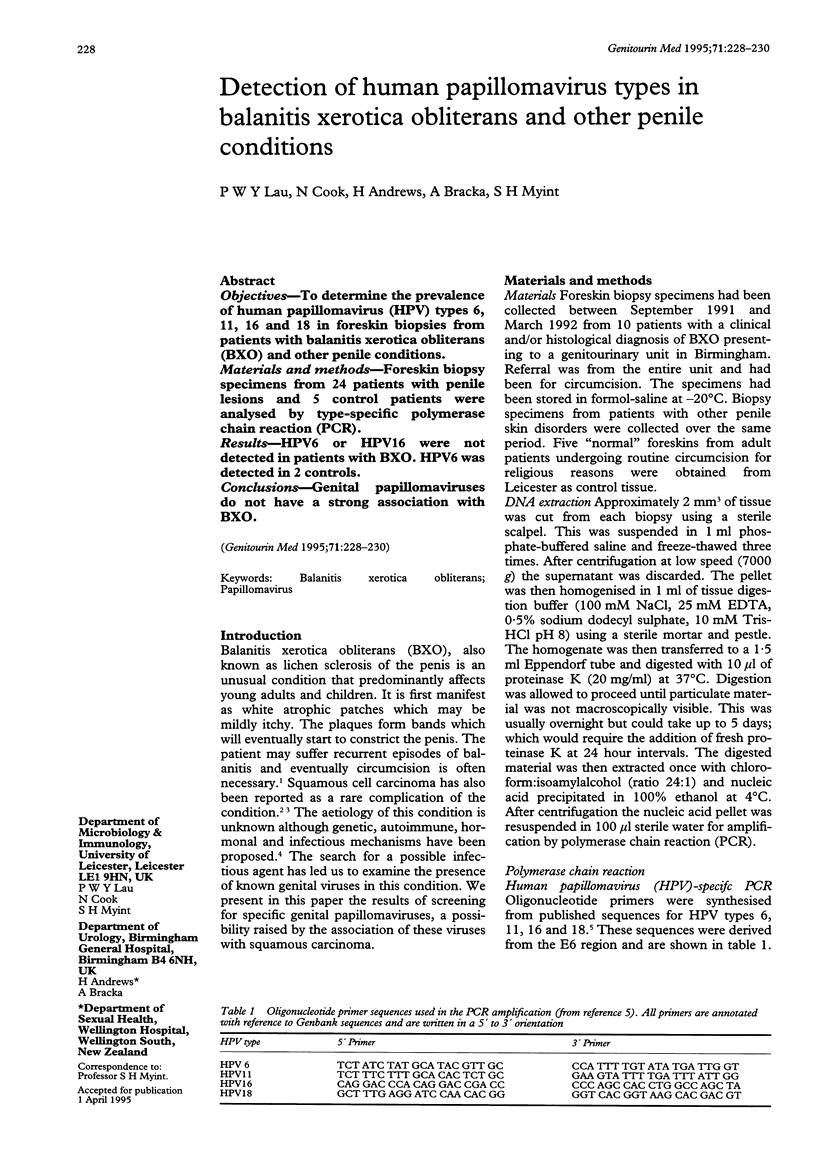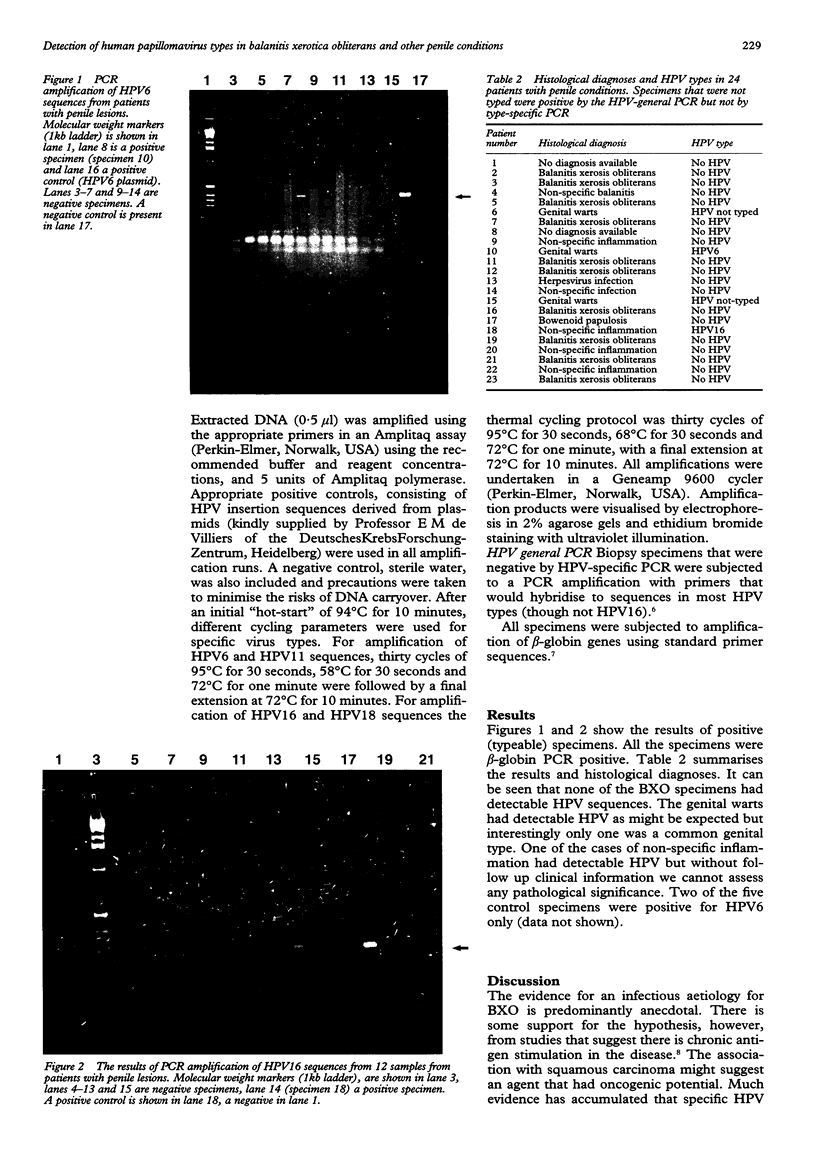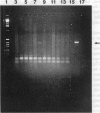Abstract
OBJECTIVES--To determine the prevalence of human papillomavirus (HPV) types 6, 11, 16 and 18 in foreskin biopsies from patients with balanitis xerotica obliterans (BXO) and other penile conditions. MATERIALS AND METHODS--Foreskin biopsy specimens from 24 patients with penile lesions and 5 control patients were analysed by type-specific polymerase chain reaction (PCR). RESULTS--HPV6 or HPV16 were not detected in patients with BXO. HPV6 was detected in 2 controls. CONCLUSIONS--Genital papillomaviruses do not have a strong association with BXO.
Full text
PDF


Images in this article
Selected References
These references are in PubMed. This may not be the complete list of references from this article.
- Campus G. V., Alia F., Bosincu L. Squamous cell carcinoma and lichen sclerosus et atrophicus of the prepuce. Plast Reconstr Surg. 1992 May;89(5):962–964. doi: 10.1097/00006534-199205000-00032. [DOI] [PubMed] [Google Scholar]
- Datta C., Dutta S. K., Chaudhuri A. Histopathological and immunological studies in a cohort of balanitis xerotica obliterans. J Indian Med Assoc. 1993 Jun;91(6):146–148. [PubMed] [Google Scholar]
- Feldmann R., Harms M. Lichen sclerosus et atrophicus. Hautarzt. 1991 Mar;42(3):147–153. [PubMed] [Google Scholar]
- Green J., Monteiro E., Bolton V. N., Sanders P., Gibson P. E. Detection of human papillomavirus DNA by PCR in semen from patients with and without penile warts. Genitourin Med. 1991 Jun;67(3):207–210. doi: 10.1136/sti.67.3.207. [DOI] [PMC free article] [PubMed] [Google Scholar]
- Nuovo G. J., Darfler M. M., Impraim C. C., Bromley S. E. Occurrence of multiple types of human papillomavirus in genital tract lesions. Analysis by in situ hybridization and the polymerase chain reaction. Am J Pathol. 1991 Jan;138(1):53–58. [PMC free article] [PubMed] [Google Scholar]
- Pride H. B., Miller O. F., 3rd, Tyler W. B. Penile squamous cell carcinoma arising from balanitis xerotica obliterans. J Am Acad Dermatol. 1993 Sep;29(3):469–473. doi: 10.1016/0190-9622(93)70213-d. [DOI] [PubMed] [Google Scholar]
- Saiki R. K., Scharf S., Faloona F., Mullis K. B., Horn G. T., Erlich H. A., Arnheim N. Enzymatic amplification of beta-globin genomic sequences and restriction site analysis for diagnosis of sickle cell anemia. Science. 1985 Dec 20;230(4732):1350–1354. doi: 10.1126/science.2999980. [DOI] [PubMed] [Google Scholar]
- Schneider A., Kirchmayr R., De Villiers E. M., Gissmann L. Subclinical human papillomavirus infections in male sexual partners of female carriers. J Urol. 1988 Dec;140(6):1431–1434. doi: 10.1016/s0022-5347(17)42065-9. [DOI] [PubMed] [Google Scholar]
- Snijders P. J., van den Brule A. J., Schrijnemakers H. F., Snow G., Meijer C. J., Walboomers J. M. The use of general primers in the polymerase chain reaction permits the detection of a broad spectrum of human papillomavirus genotypes. J Gen Virol. 1990 Jan;71(Pt 1):173–181. doi: 10.1099/0022-1317-71-1-173. [DOI] [PubMed] [Google Scholar]




